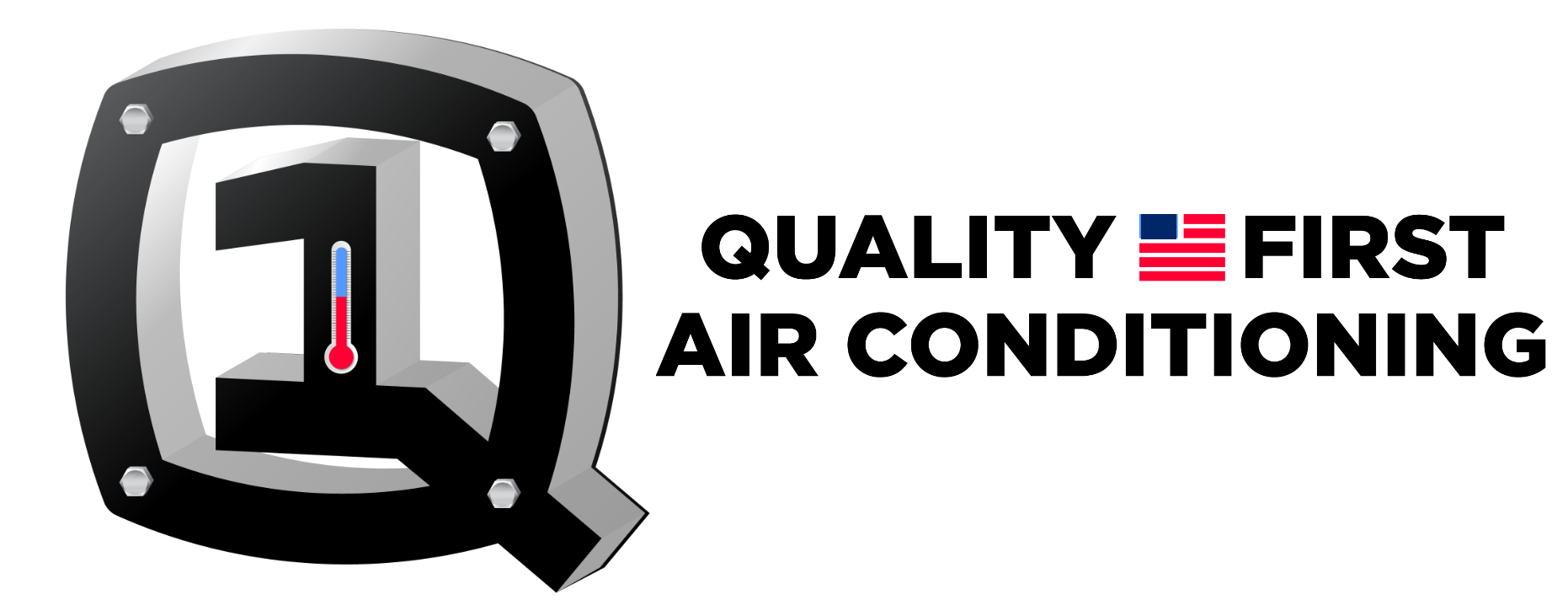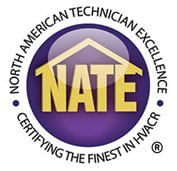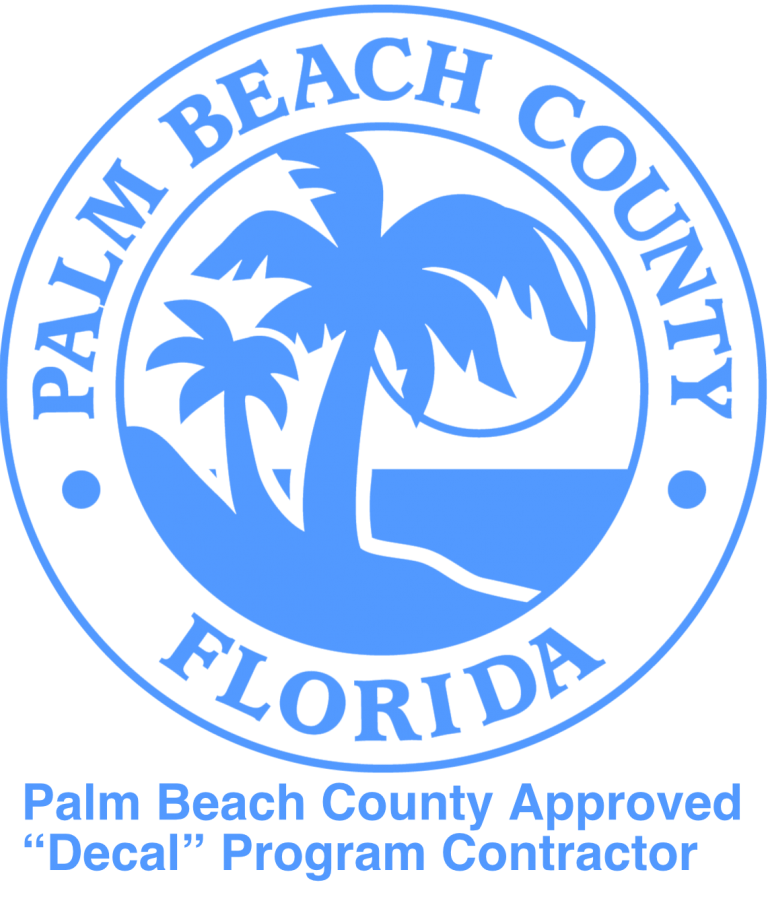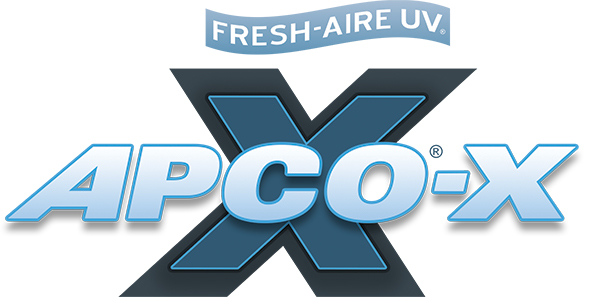Key Takeaways
-
Boca Raton’s hot, humid and coastal climate places additional stress on air conditioners, so routine inspections and preventive maintenance are key to keeping it dependable.
-
High humidity and salt air leads to wear, corrosion, and even mold, so spending a little extra on dehumidification features and protective measures goes a long way to prolonging your system’s life.
-
Knowing your AC red flags and hiring experienced, certified technicians for repairs can help you avoid expensive breakdowns and keep you safe and efficient.
-
Navigating repair expenses, timing the replacement of a worn-out system, or upgrading to energy-efficient innovations all have the potential to pay off in the long run in savings and comfort.
-
Seasonal tune-ups, prompt filter changes and proper drain line and outside unit care keep your system efficient, your air clean and help you avoid unexpected breakdowns.
-
Discover how advanced HVAC technologies, intelligent thermostats, and ductwork maintenance can improve indoor comfort, save energy, and promote healthier living spaces.
Air conditioning repair boca raton is repairing damaged or inefficient cooling for residential or commercial dwellings throughout the city. They want fast, expert assistance when their air conditioning breaks down during the hot months. Frequent issues are low airflow, strange sounds, leaking and warm vents. Local repair services frequently provide same-day visits, reasonable rates, and transparent guidance on whether to repair or replace a unit. Boca Raton technicians understand how to work with tons of AC brands and models, so most problems get fixed in a flash. To try to keep their homes both safe and cool, many residents are making repair calls as soon as they detect an issue. The body covers what to expect from these repair services.
Boca’s Climate Challenge
Boca Raton rests along Florida’s southeastern coast, where they’re dealing with some distinct climate challenges that give air conditioners a run for their money. High humidity, salt air from the Atlantic and continuous heat can accelerate wear and tear on HVAC equipment. We have air conditioning units here that operate nearly year-round and then storms seasons only complicate matters further, making routine maintenance a necessity for both residences and businesses.
Humidity’s Impact
High humidity and Boca Raton are in a love affair, so indoor air can be sticky and tough to cool. It’s not simply comfort. When the humidity is high, dust and mold can grow and spread more easily through vents, exacerbating allergies for many.
If your AC isn’t serviced regularly, mold can accumulate and reduce air quality quickly. Mold and damp air exacerbate asthma and other respiratory issues. When the indoor air is muggy, your unit has to work overtime to provide a cool environment. That translates into higher energy bills and more breakdowns.
New air conditioning with dehumidification that keeps the air clean and comfortable. These features can be particularly useful in locations such as Boca Raton, where humidity is elevated for the majority of the year.
Salt Air Corrosion

With Boca so near the ocean, our salt air can corrode metal components within your AC. Over time this can cause rust and things like coil leaks or electrical failure, slashing the life of your system.
Routine cleaning and bi-annual maintenance visits are essential to identifying early signs of salt damage. Technicians can catch issues early, preventing a costly repair down the road.
Some AC units these days use specialty coatings or stainless components to withstand salt air better. These upgrades can often pay off in strong coastal winds and salty spray. For homeowners, storm season weather-resistant covers are another smart move.
Year-Round Strain
Long, hot seasons mean airconditioning units in Boca Raton pretty much never take a breather. Constant use can cause your system to show signs of stress — odd sounds, haphazard cooling, or increasing energy bills. All of these are hints the system requires attention.
Booking AC service pre-summer and again pre-winter all but guarantees you’ll spot small issues early. That way you can sidestep expensive repairs and unexpected meltdowns during heat waves. Others decide to upgrade older units preemptively, because new ones run more efficiently and better weather the climate.
Navigating Repairs
Air conditioning repair boca raton is not just about repairing a broken unit. If you want to keep your system humming all year long, it pays to know what to look out for, who to trust, and how to balance the expenses.
1. Recognizing Symptoms
Unusual noises, such as banging or hissing, can be a sign that something inside the unit is loose or worn. If one room is warm and another is cool, your AC may have airflow issues. Odd odors—musty or burnt smelling—can indicate mold or electrical problems. Elevated energy bills could indicate the system is overexerting itself fighting leaks or clogged filters. Puddles near the unit can signal refrigerant leaks that reduce cooling and harm other components, so keep an eye out for them.
2. Choosing Technicians
Begin with finding reliable local service pros in Boca Raton. Confirm that the company’s technicians are properly certified, such as NATE or EPA, which indicates they understand how to handle AC systems safely. Check out online reviews and testimonials, for example, to find out if previous clients were happy. Query friends or neighbors who have had repairs — their candid feedback will save you from incompetent companies. Dependable techs will respond to your inquiries, provide transparent estimates, and never up-sell you.
3. Understanding Costs
Repair costs can span from easy filter swaps to advanced compressor changes. Labor and parts comprise the bulk of the invoice. Emergency repairs after hours or on weekends typically cost more, so it’s smart to consider urgency. Service plans can keep these costs from sneaking up on you and usually involve refrigerant inspections, thermostat calibration, filter replacement, and electrical safety inspections. Be wary of hidden charges, like surcharges for hard-to-source parts or mileage.
4. Repair vs. Replace
If your AC is more than 10 years old or requires repairs often, consider replacing it. New systems consume less energy and can save you money over time. Modern technology provides improved comfort and reduced noise as well. Consult a reliable HVAC specialist and receive tailored tips about what best suits your needs and budget.
5. Emergency Situations
Total failure or a quick loss of cooling means you need assistance ASAP, particularly when the heat is on. Know which local companies provide 24/7 service so you can move fast. Emergencies don’t come as often with tune-ups, so schedule checkups every six months if your unit operates frequently.
Proactive Maintenance
Air conditioning proactive maintenance means getting ahead of the game and preventing major issues. It’s about check-up and cleaning schedules, not just break down. This makes your AC more efficient, extends its lifespan, and pays for itself in energy savings over time. Seasonal inspections and scheduled tune-ups catch small problems early. Turns out that proactive maintenance is a lot cheaper than reactive repair. A good plan consists in regular checkups, cleanings and replacements of parts. Let’s zoom in on the major actions.
Mold Prevention
Routine service reduces the chances of mold in your A/C. Mold can spread quick in areas with excess moisture and an unchecked system is typically to blame.
If you maintain the drain and regulate the humidity, you can prevent the majority of mold issues. Top-notch filters assist purify the air and reduce allergens, which is crucial for any home. Regular checkups make it simpler to detect mold or leaks before they become a health hazard.
Efficiency Tune-ups
Yearly tune-ups are essential for a system that runs strong year after year. On each service visit, clean coils and replace filters to maintain airflow and cooling efficiency.
Inspect the refrigerant levels and review the electrical components to ensure everything is secure and in prime condition. Observe how your system functions from season to season—monitoring its performance can reveal where you’re wasting energy and where you can conserve.
Longevity Tips
Here’s the manufacturer’s guide to help keep your AC running longer. That means quality parts and quality people servicing it.
Brush leaves and plants off the outdoor unit–because blocked airflow means hard work for the system. Take the time to familiarize yourself with the signs of wear, such as strange noises or uneven cooling, so you can repair minor problems before they escalate.
Maintenance Checklist
-
Schedule tune-ups every season.
-
Inspect for leaks, rust, and worn parts.
-
Change filters as recommended.
-
Clean coils and drain lines.
-
Consider a comprehensive maintenance package including inspections, cleaning, and repairs.
System Installation
Air conditioning system installation is about more than just installing a new unit. It requires a close evaluation of your home, local codes, and the impact the system will have on energy bills and comfort. Professional installation keeps you from making errors that can cause costly or ineffective results. A quality install can keep an AC humming for well over a decade, but only if the right system fits the right home and all the rules are met. If you’ve got energy-efficient models or insulation, rebates can help reduce costs.
Sizing Correctly
Doing the size part right is key. Too small, the unit can’t cool good and runs too much. Too large, it short cycles which wears it out and wastes energy.
Specialists conduct a load calculation to pair the system with your home’s square meters. They inspect wall thickness, window dimensions, shade, and other factors. A lot of older homes have ductwork that’s too small for today’s systems, so duct replacement might be necessary. Right sizing translates into even cooling, less breakdowns, and smaller bills.
Code Compliance
Cities and towns impose regulations on AC installs such as the proximity of units to walls or windows, electrical wiring, and drainage.
Installing with licensed pros helps guarantee your system complies with these regulations and clears inspections, staving off fines or time-consuming future delays. Always save copies of permits and inspection forms. These could be required if you sell the home or require warranty work.
Modern Upgrades
Today’s systems provide more than cooling. New units can include smart controls, enhanced indoor air filters and variable-speed components for reduced noise and energy consumption. A lot of systems support indoor air quality upgrades, such as air purifiers or humidity control.
|
Feature |
Benefit |
Example |
|---|---|---|
|
Smart Thermostat |
Remote control, scheduling |
Adjust from a phone app |
|
Variable Speed Compressor |
Quieter, better efficiency |
Uses less electricity |
|
High SEER Ratings |
Lower utility bills |
Some units cut cost by 40% |
|
Air Quality Add-ons |
Healthier indoor air |
HEPA filters, dehumidifiers |
Spending on these enhancements might be pricier initially, but they can lower annual expenses and fixes. Certain zones provide as much as $150 back on efficient AC or $220 on improved ceiling insulation.
The Homeowner’s Role
Air conditioners require regular maintenance in order to function efficiently and to remain durable. Homeowners take care of lots of little but crucial things that prevent major and expensive repairs. Simple maintenance — such as annual inspections, filter changes, and listening for weird noises or leaks — keeps equipment humming, even in heat and humidity swings.
Filter Changes
-
Change filters according to the manufacturer’s guide, typically every 1-3 months.
-
Select filters that fit your system, such as HEPA or pleated varieties.
-
Mark filter change dates on a calendar to prevent lapses in switching.
-
Demonstrate to the entire household how clean filters contribute to health and comfort.
Exchanging filters promptly counts more in dustier areas. Clean filters reduce energy consumption and increase air quality by trapping dust and pollen. If filters remain dirty, the system works harder, consumes more energy and can wear out prematurely. Clean filters slash allergy dangers and make the air crisp for everyone in the home.
Drain Line Care
-
Inspect the drain line once a month for any trace of build-up.
-
Drizzle some vinegar or a mild cleaner down the drain to dissolve clogs.
-
Keep an eye out for water accumulating in the vicinity of indoor units—that signifies a drain issue.
-
For stubborn clogs that keep returning, schedule a professional deep cleaning.
A clogged drain line can lead to leaks, mold or water damage. If you’re in a humid area, check more frequently as the line clogs more quickly. Keeping this chute clear keeps the system run slick and clean.
If water collects, it can degrade floors or walls. Fast inspections can prevent larger issues. A pro should see clung up.
Outdoor Unit Checks
Keep the outside unit clear of leaves, twigs or grass — they block airflow. Trim vegetation and remove yard debris on a monthly basis. Place rust or worn spots that you identify as early possible and you’ll have them repaired before they escalate. Professional advice says an annual visit to keep the entire unit in form.
System Monitoring
Monitor your system’s operation—strange noises, feeble airflow or sudden spikes in electricity consumption are signs it needs a check. Check electric components such as fuses and breakers to ensure everything is secure. Keep up with service, consider a new unit if yours is beyond the 10-year mark.
Beyond The Thermostat
Air conditioning repair boca raton Real comfort and efficiency are tied to a deeper everything air at home, smart controls, and system health.
Indoor Air Quality
Pure indoor air influences how you feel every single day. Bad air quality isn’t always obvious, but it can exacerbate allergies, asthma, and other problems. Air quality monitors can track dust, pollen and even chemical levels so you know what’s in your air.
High-efficiency filters, meanwhile, keep your air free of small particles. They capture dust, pollen and the rest of the crap that floats in and out in every breath. We easily forget, but filters must be inspected and replaced regularly, every couple of months or more frequently in moist environments. Dirty filters will bog your system down, make it work harder and increase your energy bill. Duct cleaning is equally critical. Ducts accumulate dust and mold over time, particularly in humid regions. A clean duct system keeps air flowing smoothly and extends your AC’s life.
Smart Technology
Smart thermostats conserve energy and simplify managing your comfort. These can learn your schedule and adjust the temperature automatically so you don’t have to think about it. Remote access allows you slip in a quick check or adjustment in settings anytime, from your phone or computer — anywhere.
A few smart thermostats play with other home systems for additional control—such as setting lights and air simultaneously. New HVAC tech, though, is making these systems even smarter and more efficient every year.
Ductwork Integrity
Old or leaky ducts can waste energy and cause certain rooms to be hotter or colder than others. Periodic inspections can identify leaks or blockages. Duct sealing blocks air leaks and helps to keep your system humming.
Insulation keeps the cool air in and hot air out, so your AC doesn’t have to work overtime. If you feel weak airflow in one room, that’s an indication you might have a duct problem. Fast fixes reduce energy waste and expense.
Air Quality Equipment
Air purifiers and humidifiers work if you live somewhere humid or have allergy problems. Purifiers catch additional particulates while humidifiers prevent air from becoming too dry. Seasonal tune-ups and filter changes keep these machines running right.
Conclusion
Raw, sweaty days bang down on us here in Boca Raton. Clean air makes your room chill and peaceful. Repairing your system fast equals less worry and smaller invoices. Basic maintenance such as clean filters or clear vents keeps everything humming. Nothing like a new system to bring the fresh air and the power savings. Choosing the correct assistance counts—local technicians understand the region and typical problems. Stay ahead with quick checks, not just repairs. Your home feels better and your costs come down. Or if you want more advice or assistance with your cooling, contact a reliable Boca Raton air conditioning crew. Stay cool, save money, and experience consistent comfort all year long.
Frequently Asked Questions
What are common air conditioning problems in Boca Raton?
High humidity and non-stop use can lead to clogged filters, refrigerant leaks and electrical problems. Routine maintenance keeps these issues at bay.
How often should I service my air conditioner in Boca Raton?
Professionally advised minimum once a year. Regular use in hot climates maybe two checks per year for optimal performance.
Can I repair my air conditioner myself?
Basic stuff like changing filters is good for homeowners. For complicated repairs, it’s safer and better to call in a certified technician.
What signs indicate my air conditioner needs repair?
Rattling, weak airflow or warm air are typical symptoms. High energy bills and excessive cycling are other indicators.
How can proactive maintenance help my air conditioner?
Preventative maintenance improves system efficiency, reduces the likelihood of breakdowns, and prolongs system life. It increases energy savings and promotes better indoor air quality.
When is it better to replace rather than repair my air conditioner?
Replacement is best if your system is on the older side (over 10–15 years), needs frequent repairs, or runs inefficient despite being serviced.
What can homeowners do to maintain their air conditioning system?
Homeowners need to clean or replace filters on a regular basis, keep vents clear and have the system professionally inspected on schedule to keep it running smoothly.


























